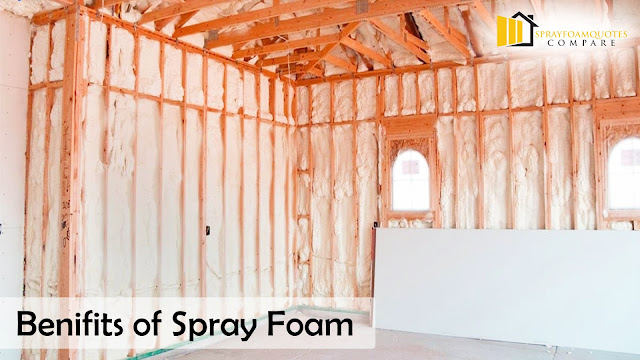How Spray Foam Insulation Can Help You Meet UK Energy Efficiency Standards
Understanding Spray Foam Insulation
Spray foam
insulation is a type of insulation that, as the name suggests, is sprayed into
place. It comes in two forms: open-cell and closed-cell. Open-cell spray foam
remains soft after setting, providing superior insulating qualities and making
homes warmer and more energy-efficient. On the other hand, closed-cell spray
foam becomes rigid, providing better insulation but can reduce ventilation as
it acts as a vapor barrier.
The Energy Efficiency of Spray Foam Insulation
Spray foam
insulation is incredibly effective in retaining heat and reducing energy
consumption. It works by creating an airtight seal that minimizes air
infiltration and prevents conditioned air leakage. This reduces the workload on
heating and cooling systems, resulting in significant cost savings. In fact,
it's been reported that spray foam insulation can help you save up to 35% on
your energy bills!
Moreover,
spray foam insulation helps control humidity and prevents moisture infiltration.
It acts as a vapor barrier, reducing the risk of condensation and mold growth.
This not only improves the indoor air quality but also contributes to a
healthier living environment.
Meeting UK Energy Efficiency Standards
In the UK,
the Energy Performance Certificate (EPC) provides an energy efficiency rating
for a property. A higher EPC rating adds value to a property and is attractive
to potential buyers. Spray foam insulation can significantly increase the EPC
rating of a property. This is because it has high insulative qualities that
make homes warmer and more energy-efficient.
Furthermore,
the UK government's ECO3 scheme offers free grants to help homeowners improve
energy efficiency. Spray foam insulation is one of the methods recommended to
achieve this.
The Environmental Impact
Spray foam insulation is not just beneficial for your pocket; it's also good for the
environment. Reducing energy consumption, it helps to decrease greenhouse
gas emissions. This aligns with the UK's commitment to achieving net-zero
emissions by 2050.
Conclusion
Spray foam
insulation offers a wealth of benefits, from reducing energy bills to improving
indoor air quality and contributing to a healthier environment. By investing in
spray foam insulation, you're not only making your home more comfortable and
cost-effective but also playing a part in the UK's drive towards energy
efficiency and environmental responsibility.
.jpg)



Comments
Post a Comment